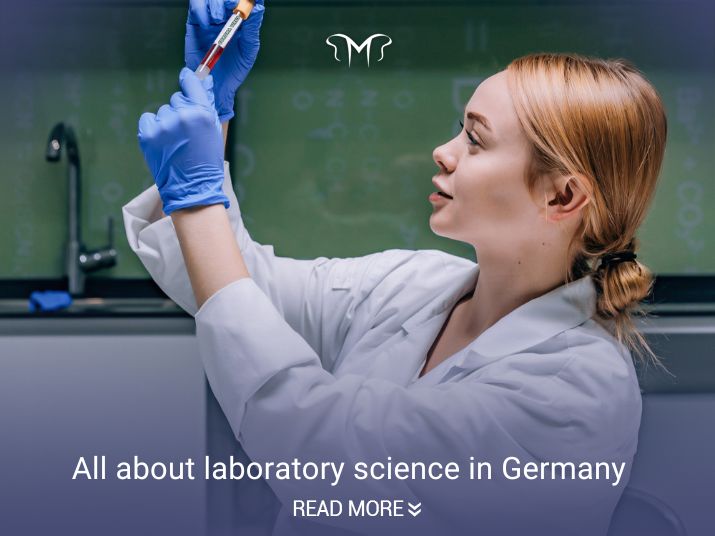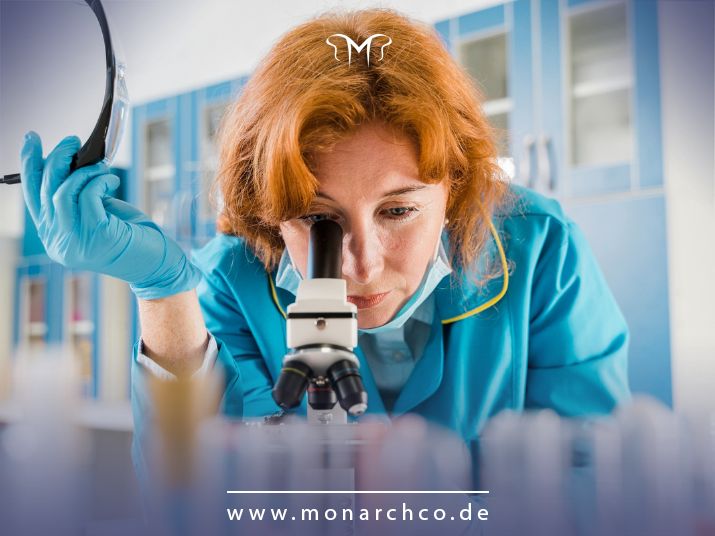
All about laboratory science in Germany
Germany has long been known for its special emphasis on basic sciences among countries, with laboratory sciences being a fundamental field. Laboratory Sciences is considered both a basic science and a subset of medical sciences, making it highly regarded in Germany. Studying Laboratory Science in Germany has gained a significant following among students, and German universities excel in providing top-notch education in this field at all academic levels. In this article, we aim to comprehensively explore Laboratory Science in Germany, so if you are interested in this subject, read this Monarch article to the end.
Field of study in laboratory science in Germany
Migration to Germany through education is much easier, with lower risks compared to other immigration methods for obtaining permanent residency. Studying at German universities can offer numerous benefits, enabling individuals to enter the global job market seamlessly. Given the high standards of German universities, there are no challenges in having your educational credentials recognized in other countries. Below are details regarding various educational levels in Germany.
Required documents for obtaining a German student visa include:
- Completed application form for the German student visa
- Valid passport
- Proof of marital status (marriage certificate)
- Marriage certificate
- Birth certificates
- Certificate of spouse's death
- Two passport-sized photos
- Copy of previous visas if applicable
- Proof of residence in Germany (student dormitory, apartment, etc.)
- Health insurance certificate covering the entire stay in Germany
- Resume
- Financial proficiency certificate
- Scholarship award certificate
- Written confirmation from parents or sponsors covering your expenses
- Official certificate of completed studies
- Letter of acceptance
- Proof of proficiency in German or English
- Certificates of previous education
- Motivation letter
And more.

Working as a laboratory science specialist in Germany
The demand for laboratory technicians in Germany is steadily increasing, and the COVID crisis has further intensified this trend. There are currently excellent opportunities for laboratory technicians. Germany boasts highly equipped laboratories at the forefront of innovation. Below are the necessary conditions for work migration in the field of laboratory sciences to Germany:
- Age between 22 and 50 (age requirement for immigration to Germany)
- Completed academic qualifications
- Certification as a laboratory technician in your home country or the country of training
- Willingness to learn German up to level B2
- Minimum of 3 years of work experience
- Finding a job offer
Read more: Immigration with the B1 German language level

Required tests for laboratory science in Germany
For pursuing a degree in Laboratory Science in Germany, certain entrance exams to the German university system are required. In the university aptitude tests in Germany, undergraduate students must fulfill the Hochschulzugangsberechtigung (German term for university entrance exam) conditions. If your high school diploma doesn't meet these requirements, you may need to complete a preparatory course before starting university studies. Master's students usually do not face this issue, as they can submit their bachelor's degree grades and, in some cases, results from specific aptitude tests to reputable German institutions. Common entrance exams for undergraduate studies in Germany include the FSP (Feststellungsprüfung) and TestAS for international students, covering various fields such as engineering, economics, social sciences, humanities, natural sciences, computer science, and mathematics.


